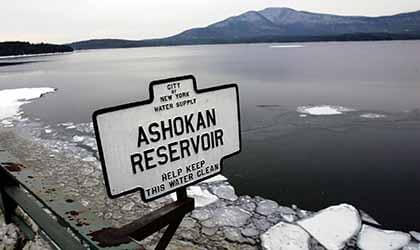By Anna Gustafson
Queens and city legislators cheered a bill passed by the state Assembly last week that places a temporary moratorium on any new permits for companies that want to use a controversial drilling technique that injects water laced with chemicals into the ground near the city’s drinking water supply.
Assembly members voted 93-43 Nov. 30 in favor of the bill, which prohibits the state from granting permits for drilling that uses the process known as hydraulic fracturing, or “hydrofracking,” until May 15. Officials have long criticized the process, saying it poses health risks to the upstate water supply that provides drinking water for the majority of city residents.
The state Senate this summer passed a similar bill, which now awaits approval from Gov. David Paterson.
“Taking this monumental step for the environment, the state placed the welfare of its citizens above the interests of environmentally harmful businesses,” City Councilman James Gennaro (D-Fresh Meadows), chairman of the Council Environmental Protection Committee, and Council Speaker Christine Quinn (D-Manhattan) said in a joint statement. “As accounts of contaminated water, soil and air due to hydraulic fracturing come in from across the country, New York is in a unique position to show much-needed leadership on this issue.”
According to a report prepared by Manhattan Borough President Scott Stringer, seven states in the country have experienced serious incidents of water contamination and explosions near sites where companies have used hydraulic fracturing, which entails injecting up to 5 million gallons of water laced with chemicals into the ground at high pressure to break the rock.
A 2008 report from the U.S. Land Management Bureau said groundwater in Sublette County, Wyo., which has one of the country’s largest natural gas fields and where hydraulic fracturing was commonly employed, was contaminated with benzene, a substance that has been linked to cancer and nervous system disorders.
State lawmakers said the temporary moratorium gives legislators additional time to evaluate the environmental impacts of hydraulic fracturing. Currently, the Environmental Protection Agency is conducting a study to investigate the possible impact hydrofracking has on drinking water. The state Department of Environmental Conservation is also studying the issue.
“This moratorium will help ensure that the hydrofracking process will only be allowed in New York after a thorough, deliberate and unrushed analysis of the process is complete,” Assemblyman Andrew Hevesi (D-Forest Hills) said.
Reach reporter Anna Gustafson by e-mail at agustafson@cnglocal.com or by phone at 718-260-4574.



































